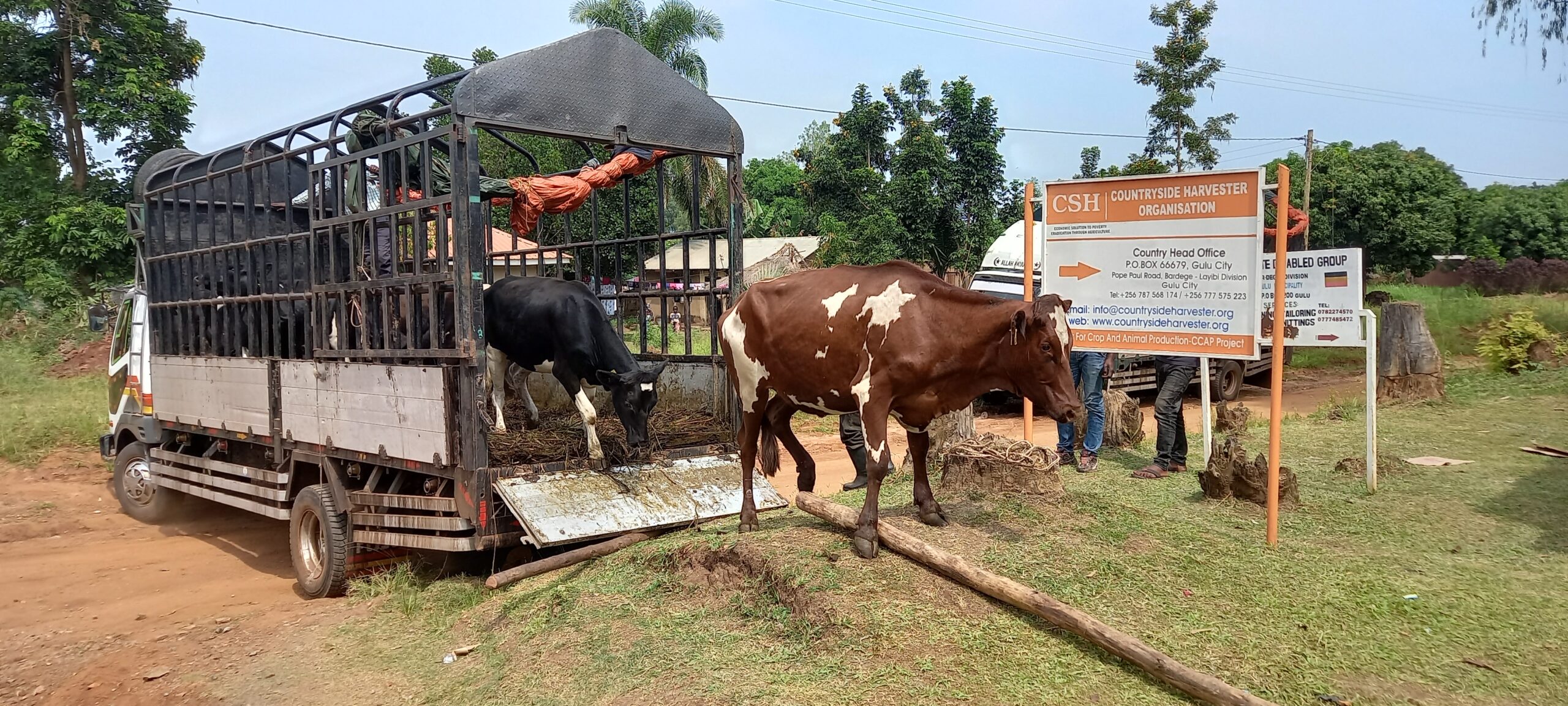Countryside Harvest, through its new project, has supplied 180 animals with the intention to improve animal production in the Acholi sub-region.
The five-year support project will be implemented through a partnership business venture between Countryside Harvest and farmers in the Acholi sub-region.
Moses Omara, the Acholi sub-region, Operation Manager told theCooperator in an interview that the UK government has invested Shs5 billion into the project.
The joint venture business module comprises 3 farmers who have to pay 600,000 to 660,000 as a commitment fee before they are given a Friesian cow for milk production.
Meanwhile, for piggery, farmers are expected to contribute to the Organisation Shs.110,000 and they are given two piglets.
Omara revealed that a total of 180 animals have so far been given to the farmers which include 103 dairy cows, 62 piglets, and 10 goats between August 2021 and December when the project was launched.
“We have spent more than Shs.300 million and we hope that this will improve animal production in the region and enhance the livelihoods of our farmers,” Omara told theCooperator.
Emmanuel Okane, a final year student of Agri Entrepreneurship at Gulu University received two piglets.
He says, he looks at piggery as an investment considering that the high demand for pork in the Country makes it a lucrative business.
Cresencia Oryem, another farmer from Nwoya district at Lungulu sub-county who received 10 goats says, she is hoping to begin earning millions of shillings from her livestock farming.
The Project Officer for the Organisation, Francis Okello says, the beneficiaries were taken through a three months training on animal production and livestock management before being supported.
However, he advised the farmers to take good care of the animals to improve their livelihoods.
Lambert Oola, the Acting Veterinary Officer for Gulu City urged the beneficiaries to invest in the health care of their animals and also to properly feed them if they are to avoid diseases.
He explained that most of the dairy cows in the area are underfed which he says, is affecting milk production and artificial insemination as most of the animals go on silent heat.
